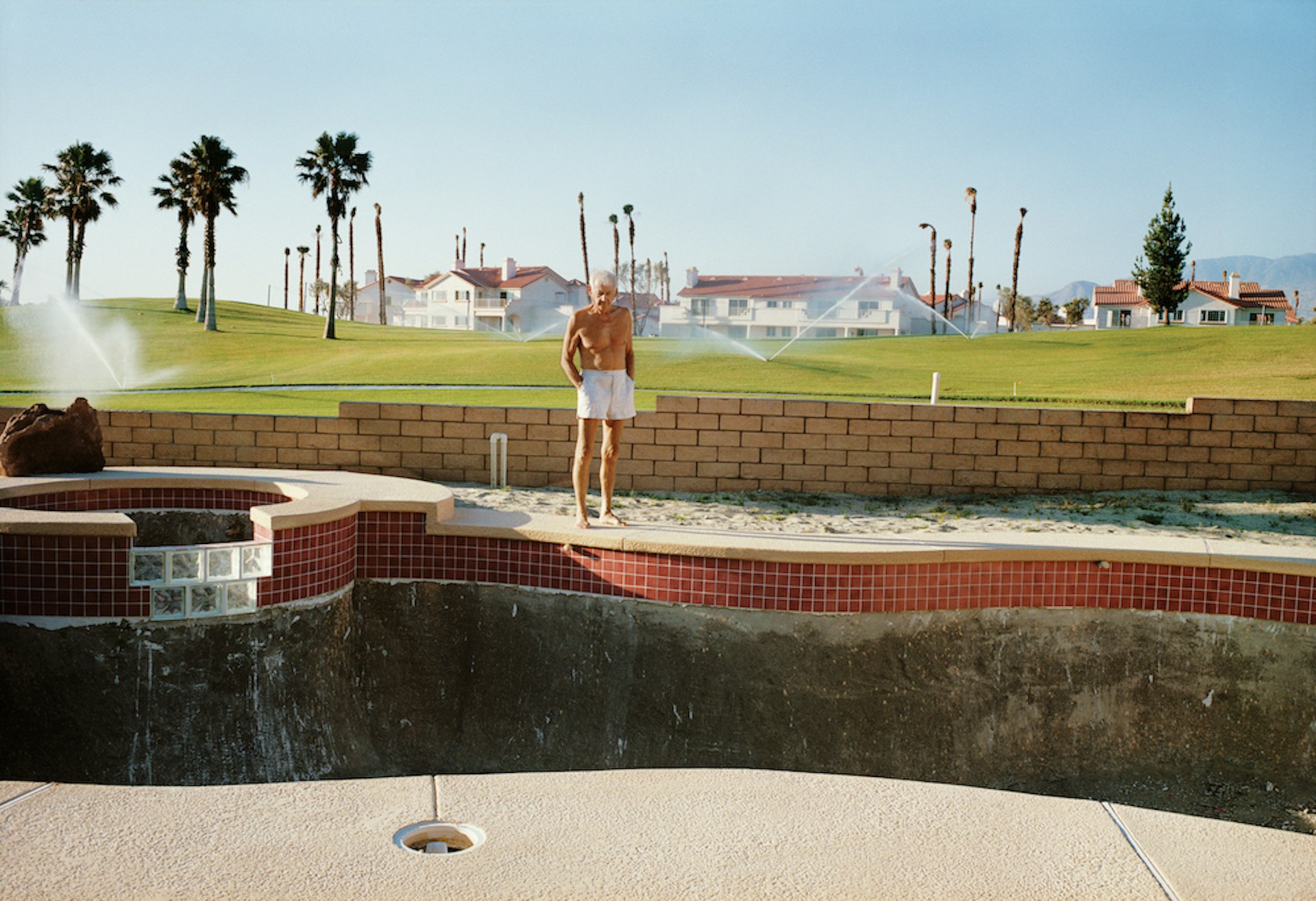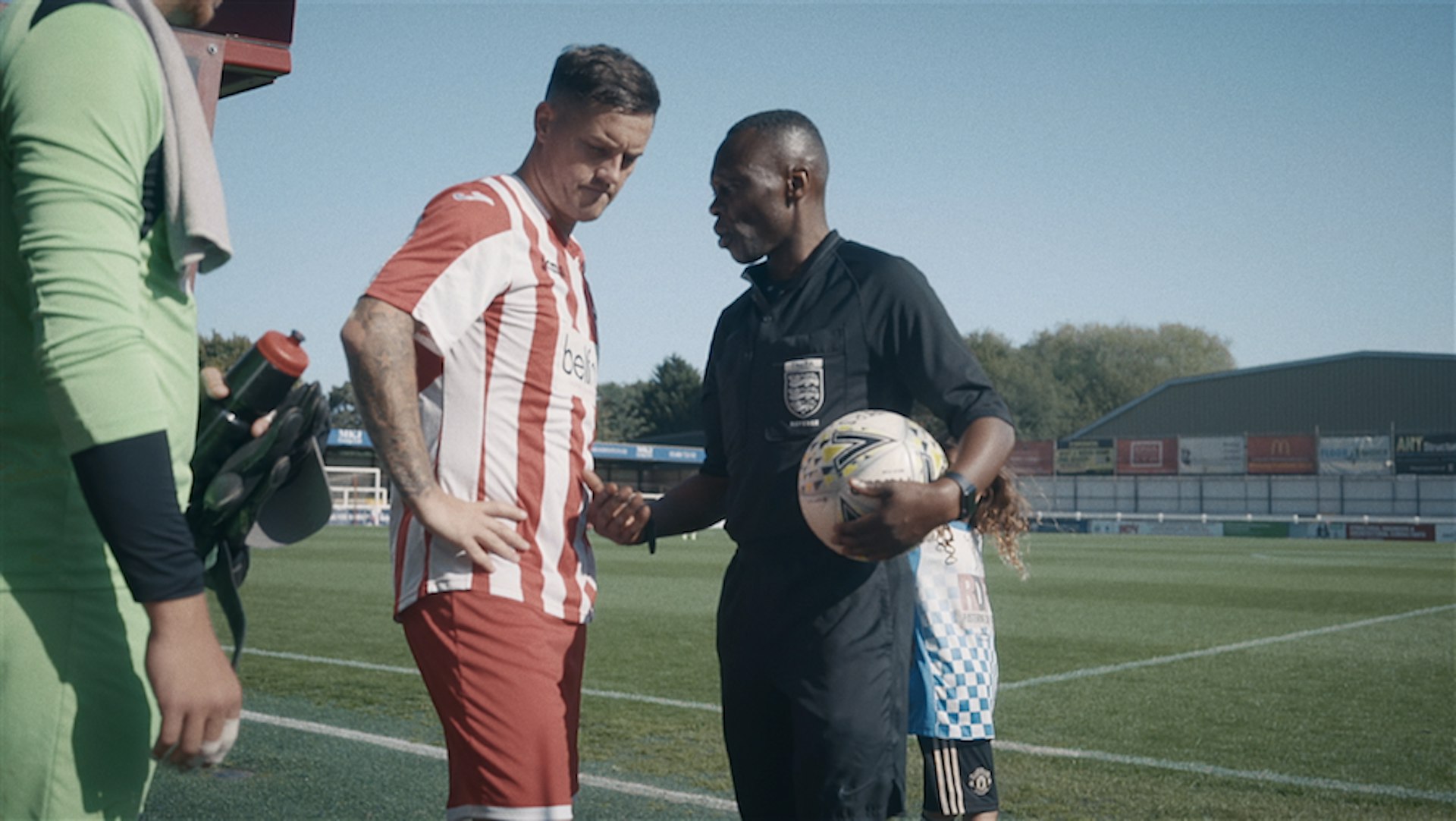
Inside the world of football’s unsung heroes: the referees
- Text by Jake Hall
- Photography by Courtesy of 'In The Middle'
It’s not unusual to watch a football match and hear the crowd erupt into chants of “the referee’s a wanker!” Brits are die-hard lovers of the so-called beautiful game, but what about the officials paid to keep the peace? Throw pints, passion and bad tempers into the mix of competitive sports, and you’ve got a bunch of compelling stories waiting to be told.
Newly-released documentary In The Middle is director Greg Cruttwell’s attempt to give voice to football referees across the UK, and they’re not as downtrodden as you’d expect. Mouse – a nickname given to him due to his “rather protruding ears” – can’t remember sending a single player off the pitch throughout his 45-year career. “I’ll book them,” he says proudly, “but I’m more than capable of telling them to fuck off!” Ann Marie moved to the UK from Jamaica in 2015 to work as a teacher, and says sports are her main form of socialising. (Iconically, she uses a chunk of camera time to bemoan the lack of ackee in her local Tesco.)
Plenty of the documentary’s subjects have experienced racism, misogyny and general abuse from players and spectators. Cassandra still has a bruise from an attack by an under-16 player; Elle once walked off the pitch at a men’s charity football game when crowds chanted “get back in the kitchen.” The life of a referee is clearly tough, but the referees seem in agreement that their love of the game outweighs the mistreatment.
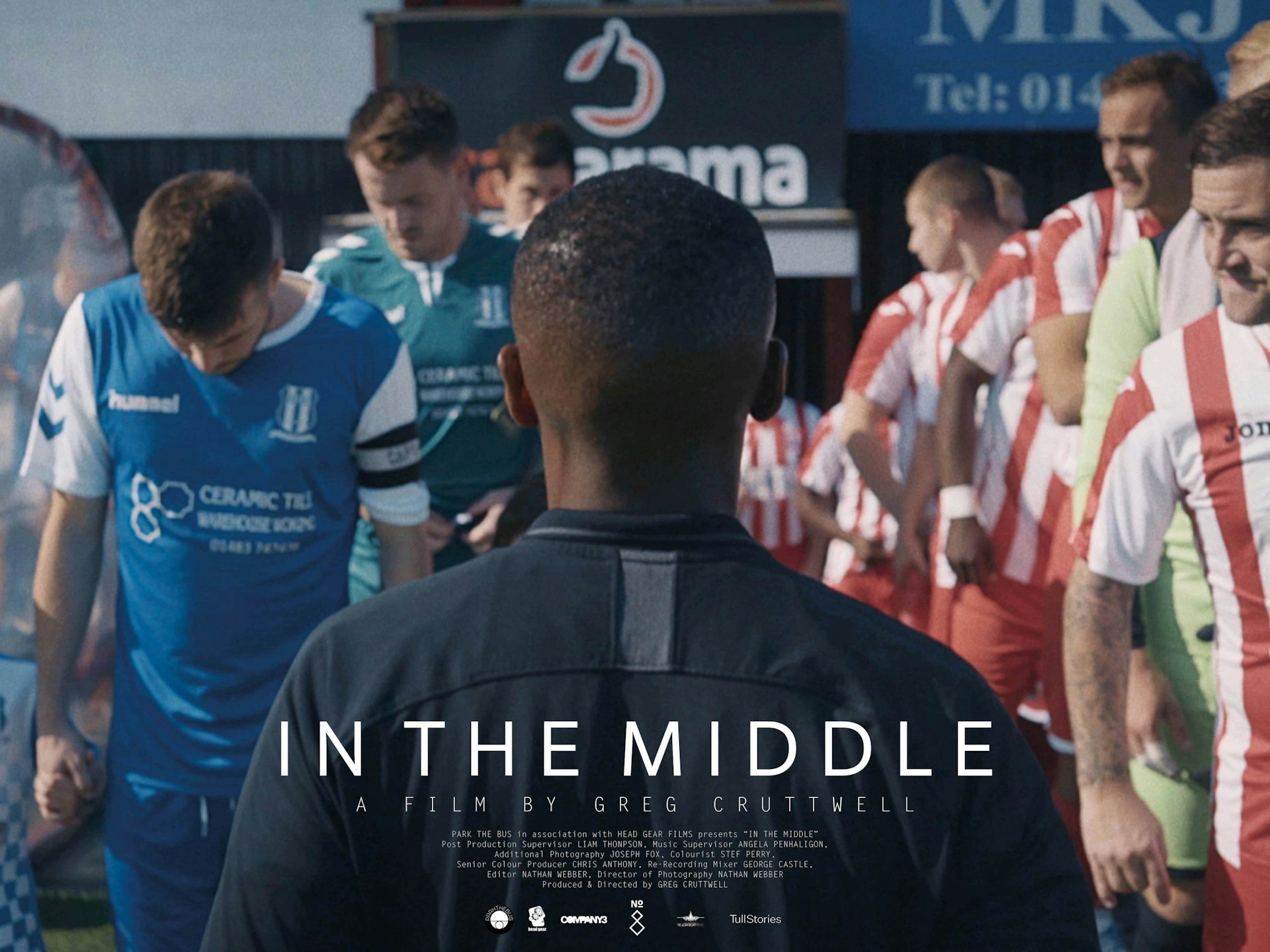
To mark the release, Huck spoke to two of the referees profiled: Nigel Owen, an optimistic family man who aspires to be promoted; and Lucy Clark, founder of all-trans football club TRUK United and the world’s first openly trans football referee, who says football saved her life.
Lucy, there’s an early story in the documentary about your pink whistles. Can you tell me more?
Lucy Clark: First of all, I’ve got no idea what made it into the documentary. I know I have my head under a car bonnet at one point! I don’t look glamorous, and I would have liked to, at least for one part, but sadly that never happened. As for the pink whistles, back when I was hiding who I was to the football world, that was my way of taking a little bit of me onto the pitch. I did have the mickey occasionally taken out of my pink whistle, but it was my way of taking a bit of Lucy out onto the pitch without anyone knowing what it meant to me. I still use pink whistles to this day.
One thing I learned from this documentary is how real the struggle is to find a good whistle.
L: I used to live around the corner from the company that supplied the Premier League with equipment. It was an Aladdin’s Cave of whistles – literally a whole wall, every whistle you could imagine! I started using the Sonic Blast, and I’m known even now for my loud whistle. I’ve got a good set of lungs, I can give it a real blast. Nobody can claim they haven’t heard it!
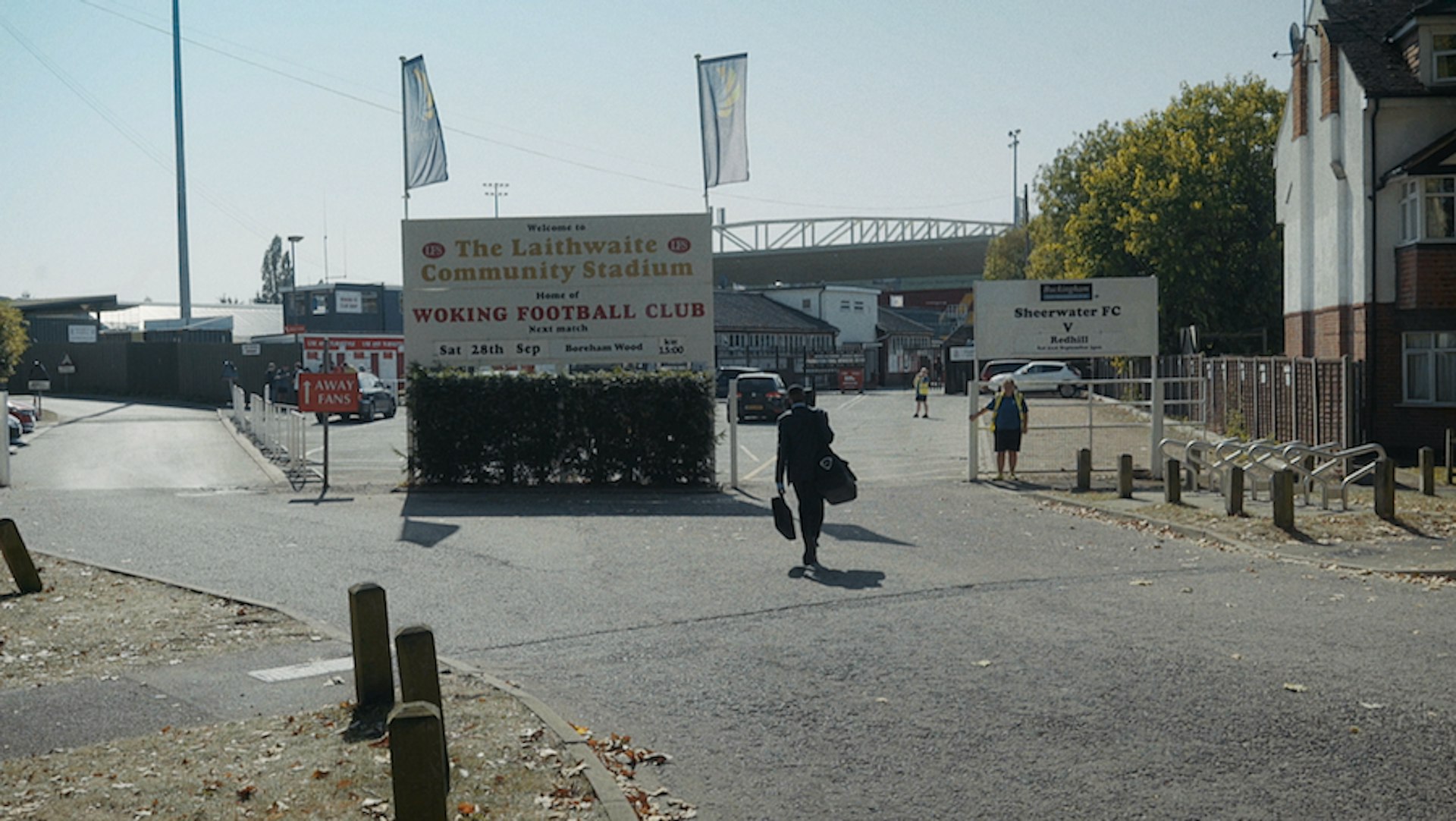
Photo: In the Middle.
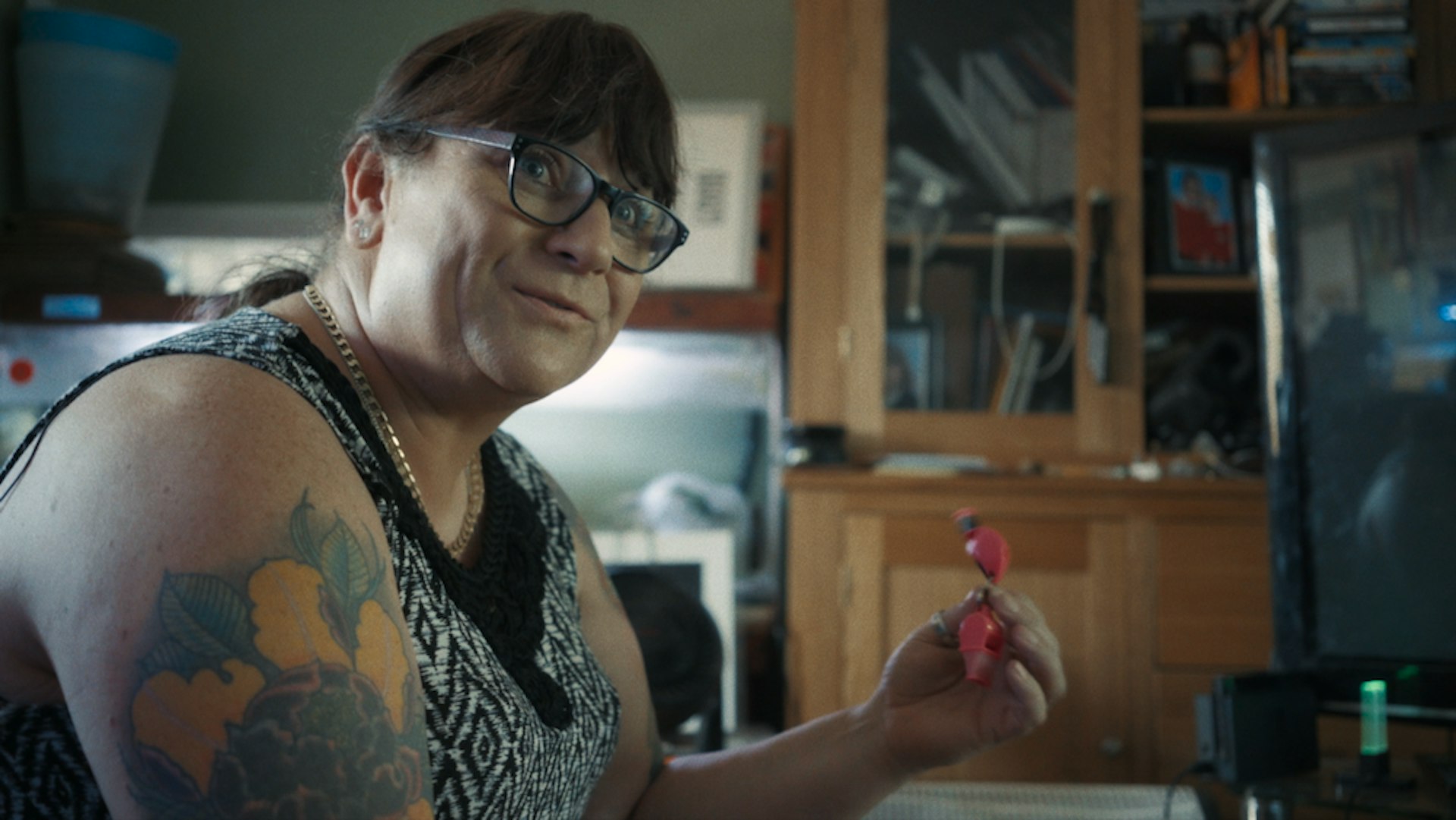
Lucy Clark. Photo: In the Middle.
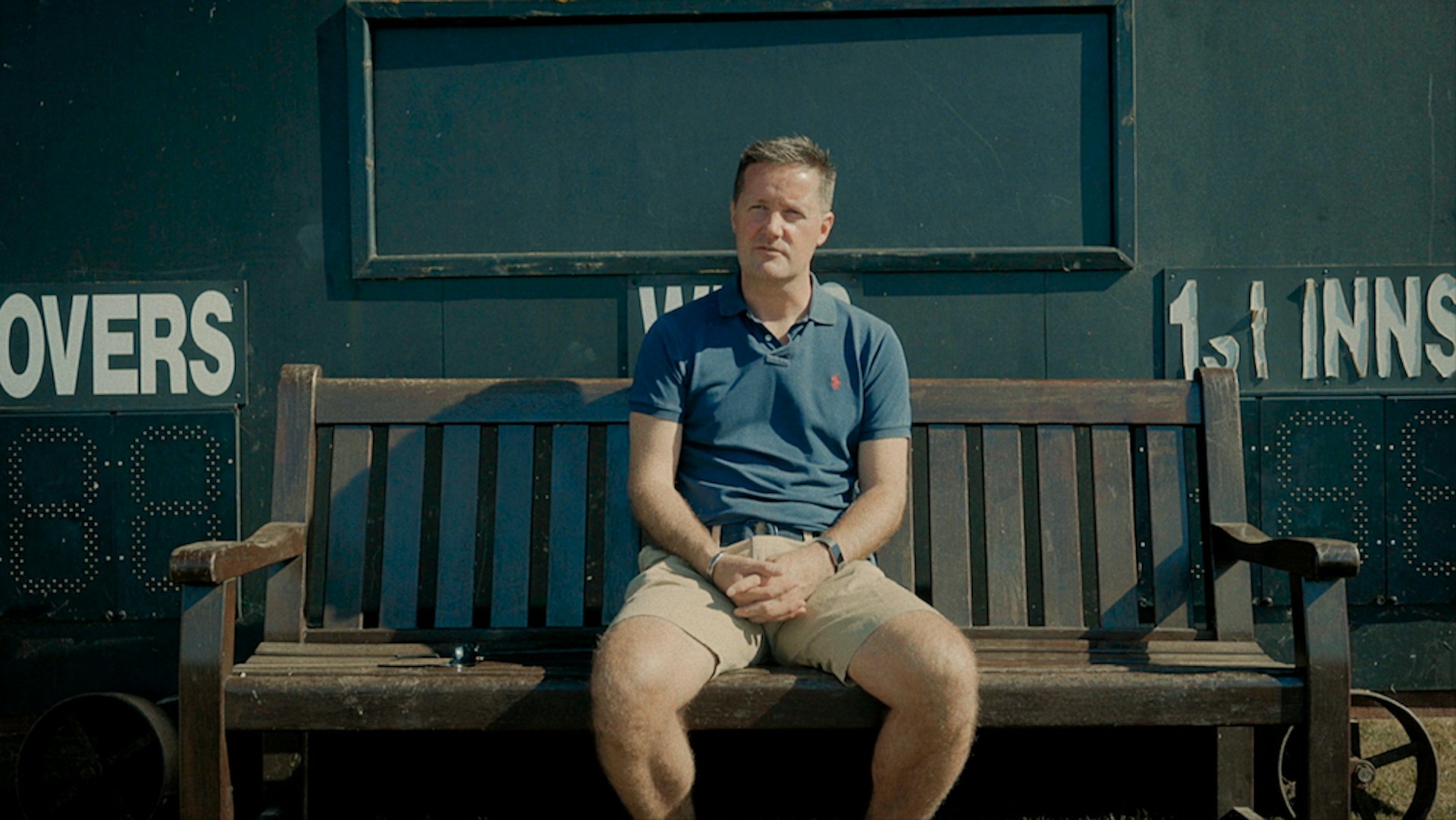
Nigel Owen. Photo: In the Middle.
What led you both to become football referees?
Nigel Owen: I played for about twenty years before I took up refereeing. I started because I thought I could do a better job than the blokes refereeing the games I was playing in. I was perhaps slightly arrogant and naïve, given what I’ve learned since then! You don’t do it for the money, but it’s a great way to stay involved with the game and to keep challenging yourself.
L: My life has always revolved around football; it comes first. I’ve always been self-employed, although COVID killed my taxi business, but being self-employed has allowed me to go and referee whenever I want. I used to have a pest control business, but I’m actually a big animal lover. I would much rather earn £50 running around a football pitch than crawl around in someone’s loft trying to kill a rat. There’s also the fact that being on a pitch makes you forget everything that’s in your head, and there’s a lot going on in my head. Football was everything [to me], because it made me forget about everything else.
Nigel, your story is really one of perseverance. What motivates you to keep going?
N: I’m one of those strange people that enjoyed exams at school, because they were a chance for me to be tested and prove how well I was doing, and I was disappointed if I didn’t succeed. My family has always been competitive, even with Snakes & Ladders. People who play sports with or against me say I become a different person when I cross that dreaded white line. I’m a very competitive person, and that drives me. It frustrates people around me sometimes, though. My wife definitely doesn’t always enjoy it.
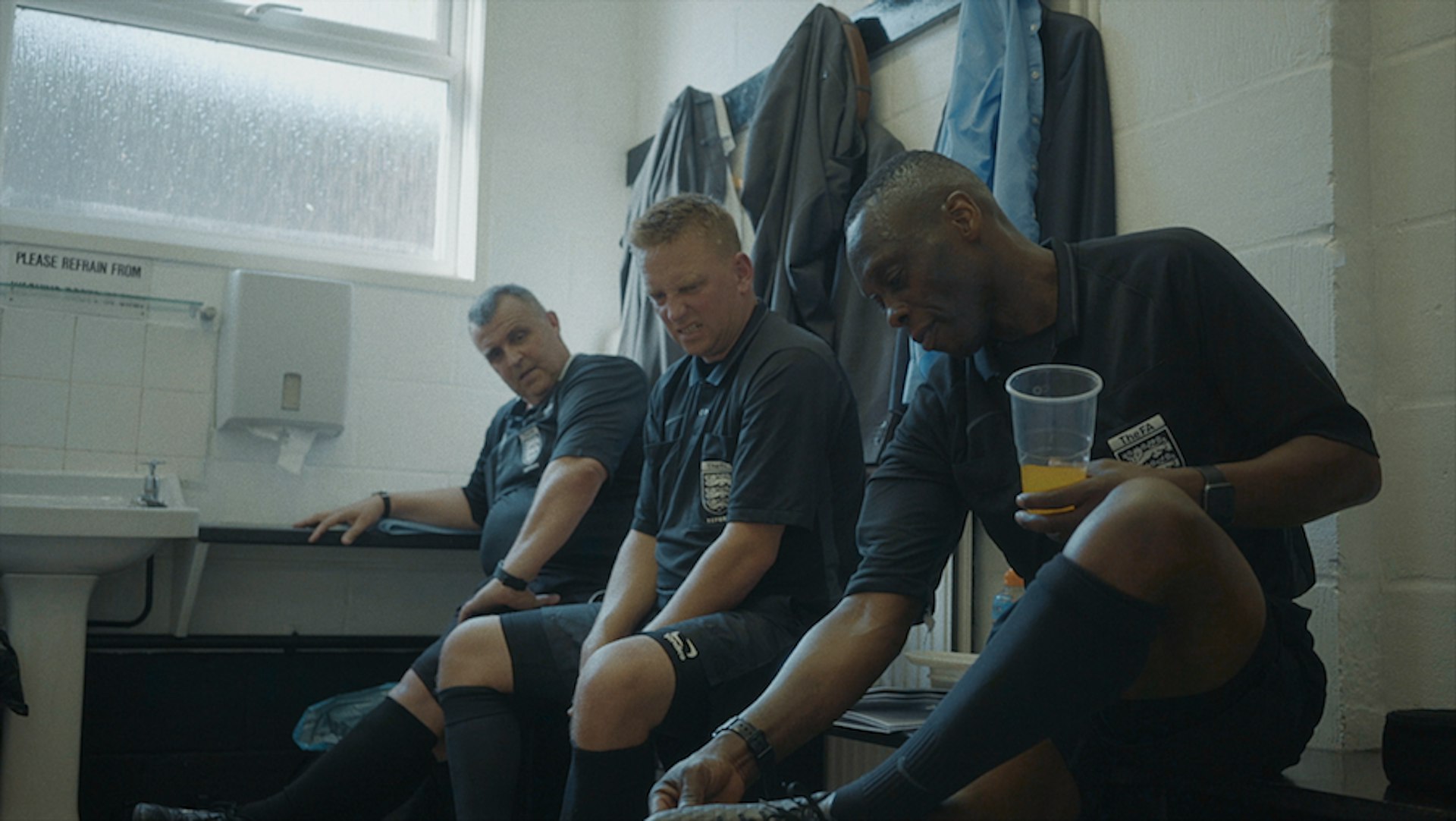
Dele Sotimirin (right). Photo: In The Middle.
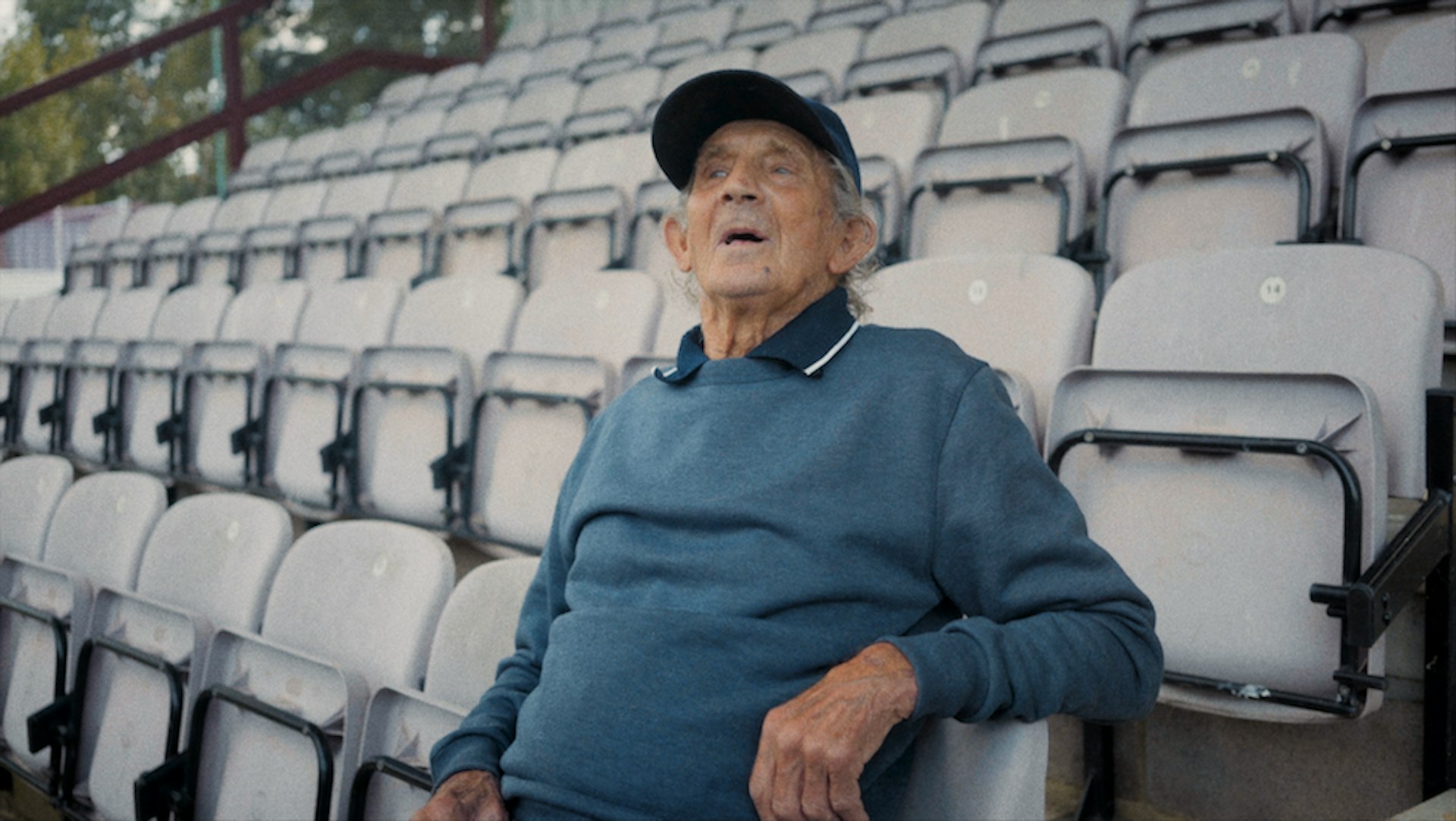
Alan “Mouse” Halfacre. Photo: In The Middle.
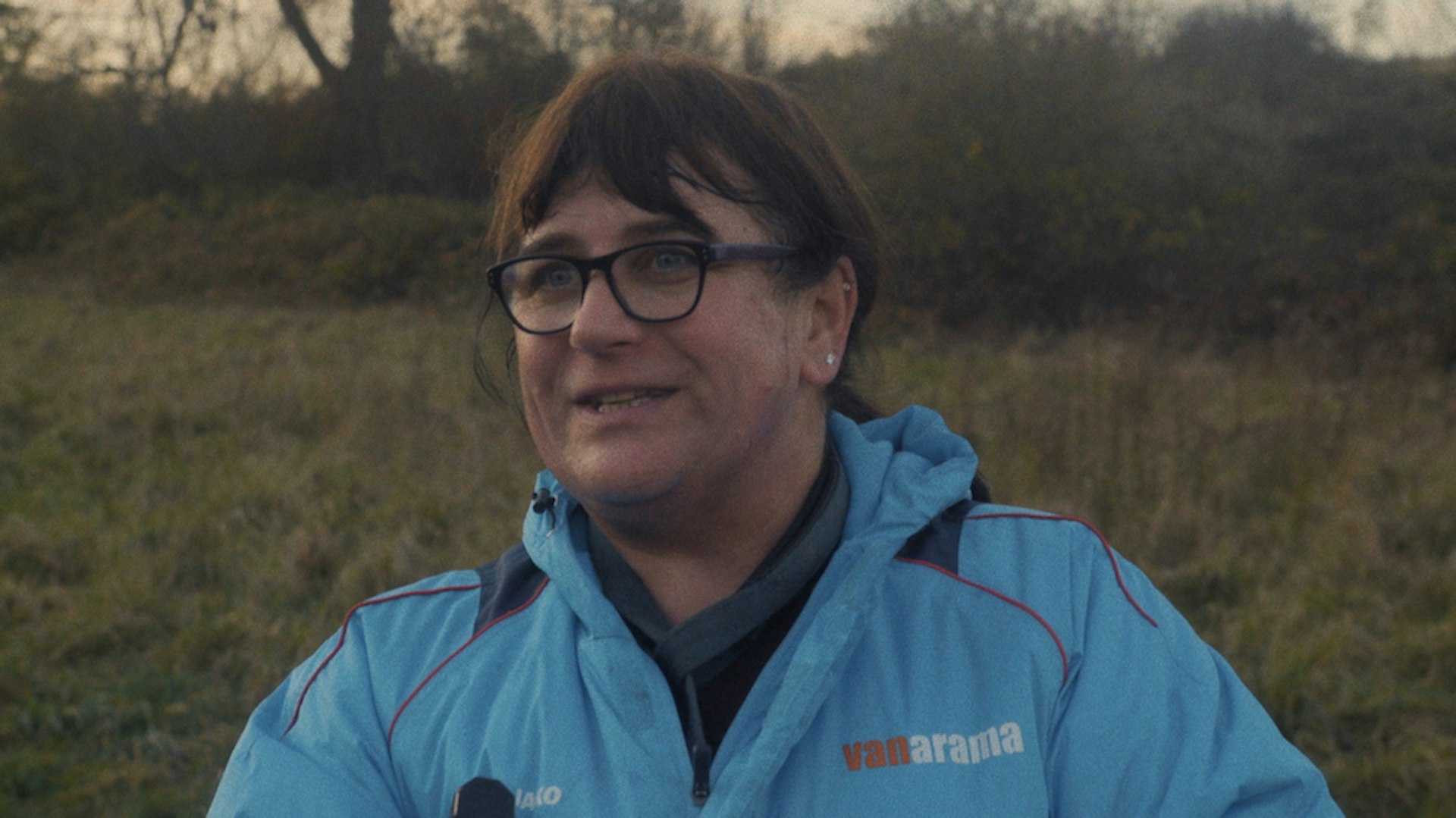
Lucy Clark. Photo: In The Middle.
Do you think there’s a misconception that being a referee is easy?
N: There seems to be an assumption that every referee can go out there and referee the perfect game every week. I don’t think there’s a player out there, whether it’s Lionel Messi or a grassroots player, who’s had the perfect game. But when a referee makes a mistake, it’s “oh, what have we got here?” It’s that reaction, that expectation we will make every decision correctly. When people complain about the standard of refereeing, I say to them, “you’re playing at this level, too. I’d like to be higher, you’d like to be higher. If you get higher, you’ll get better referees.” What frustrates me is hearing that we don’t care. I get annoyed at myself if at the end of a game I say, “you know what, I probably have got that one wrong.”
Would you say that being a referee requires a thick skin?
L: I’m transgender and I’m a referee, you can’t get much thicker skin than that! I get abused every day, so going onto the football pitch to get abused is better than Katie Hopkins posting my picture on Twitter and having 4,000 people telling me I look like the person from Benidorm. You’ll know if you’re a good referee by the number of handshakes you get at the end of the match. If I only get five, I know I’ve upset someone.
N: A few weeks ago, I went to Plymouth to watch a game and I knew the referee. It’s interesting how your reaction changes when the referee is someone you don’t know. I’m guilty of shouting and bawling at referees, but it’s different when you know the person in the kit. You hold back, because you know it’s a person. We’re just doing a job. We’re not out there to ruin anybody’s afternoon, as we often get accused of. We go out there, we call what we see, and we do the job to the best of our abilities.
Lucy, you say in the documentary that the football world has been tolerant of you as a trans woman, at least to some extent. Were you surprised by that?
L: I was scared and concerned, and my initial decision was to give it up. But then I had six heart attacks. I spent some time in hospital, and suddenly, the thought of it being maybe my last season changed my mind. But yeah, the football world has been amazing.
Don’t get me wrong, I’ve had two incidents. One terrible incident was before [I was out as trans]. It was a league decider, a player was just about to score and the player wiped him out. It was a penalty and a red card, the easiest I’ve ever given out. His team lost as a result, so he walked up to me and said: “I hope you get cancer and die.” That stuck with me. Another incident was when I did a favour by running the line at a cup semi-final. There was an inexperienced referee who liked to be friends with everyone, and he used to go to school with one team’s manager. I got a load of transphobic abuse from the manager, but the referee just told me to ignore it because he went to school with him. That left me in a bad way for about a week, and the club got fined £80. Wow. That was it. Other than that, it’s been brilliant.
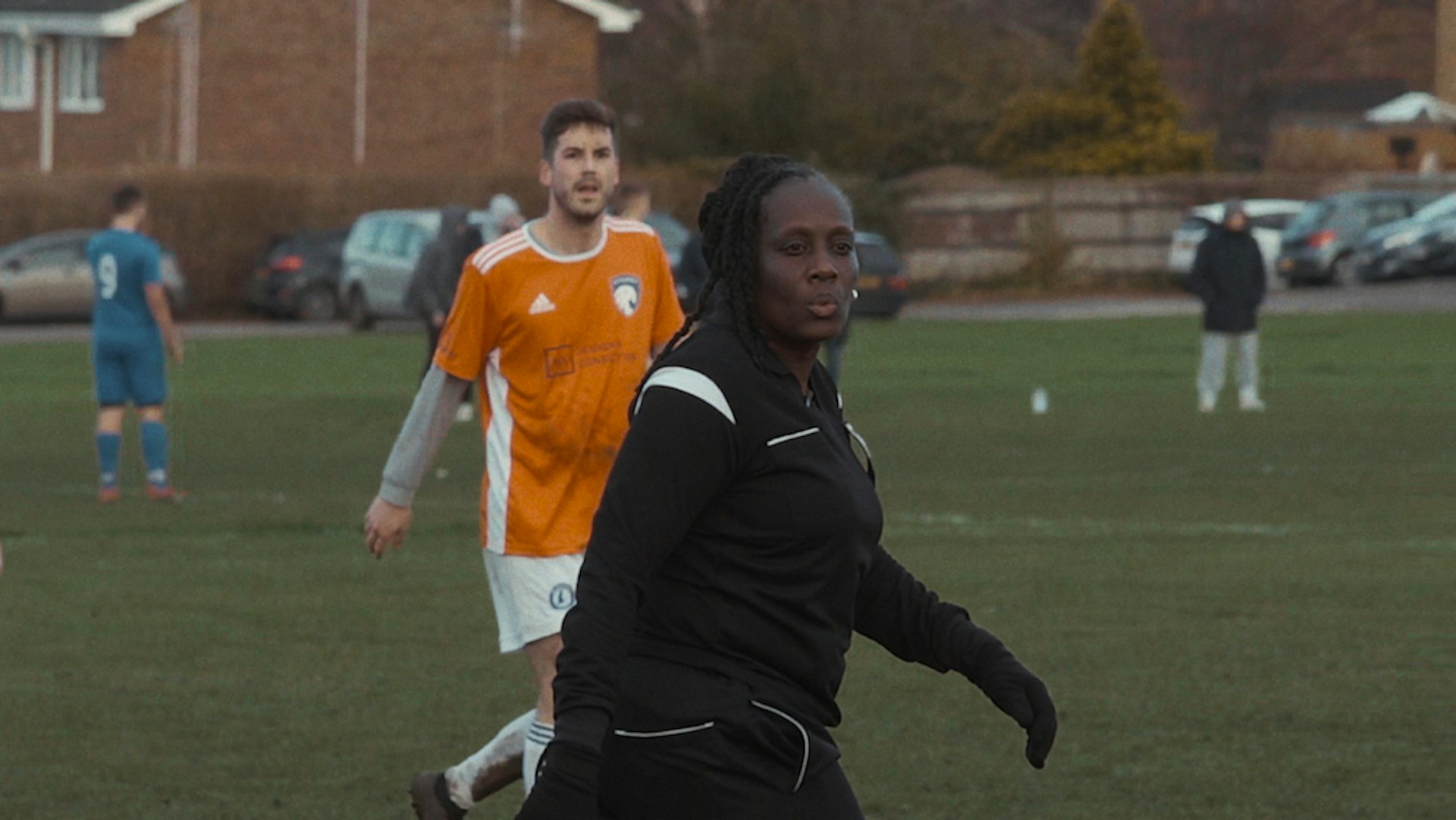
Ann Marie Powell. Photo: In The Middle.
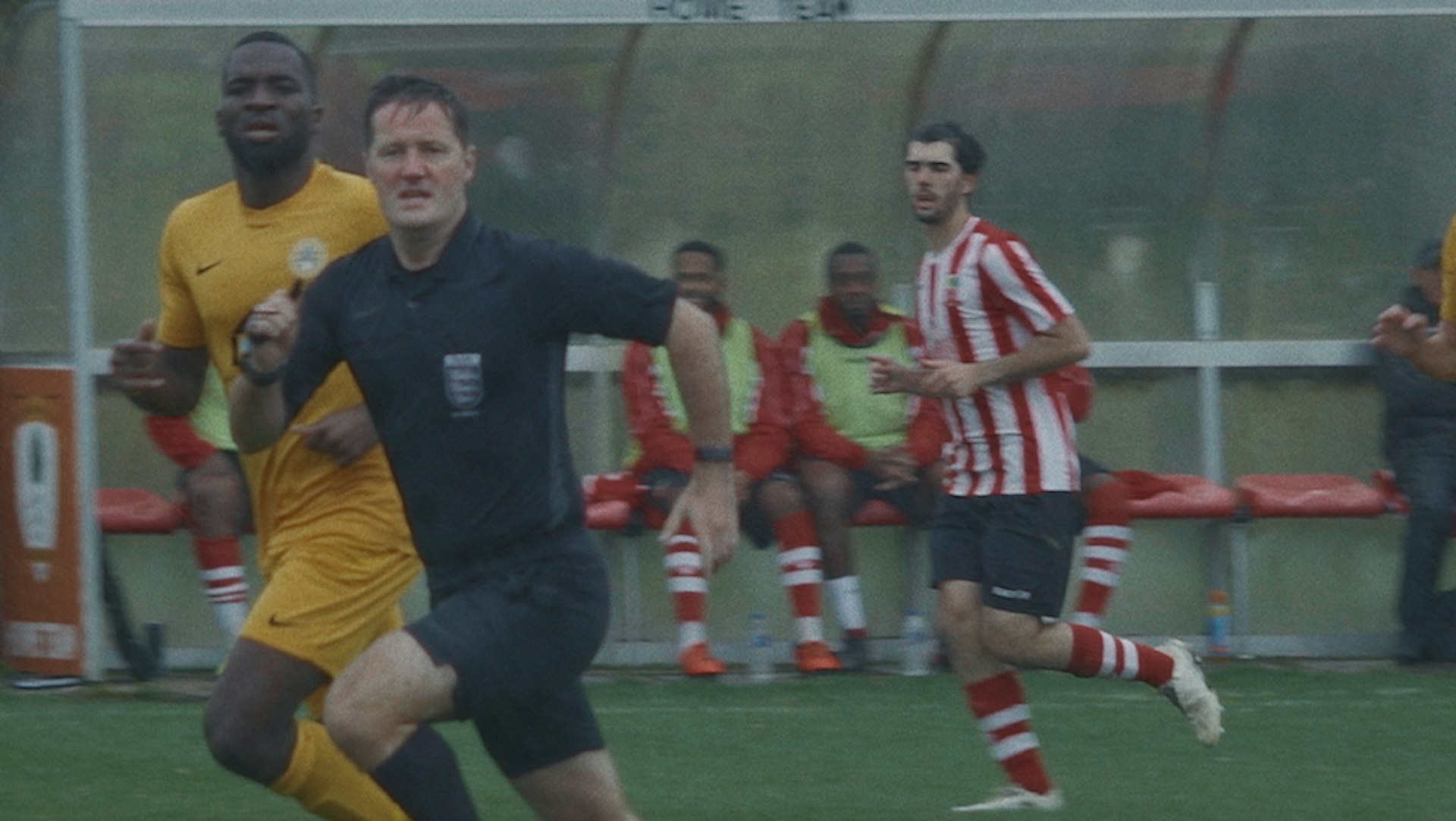
Nigel Owen. Photo: In The Middle.
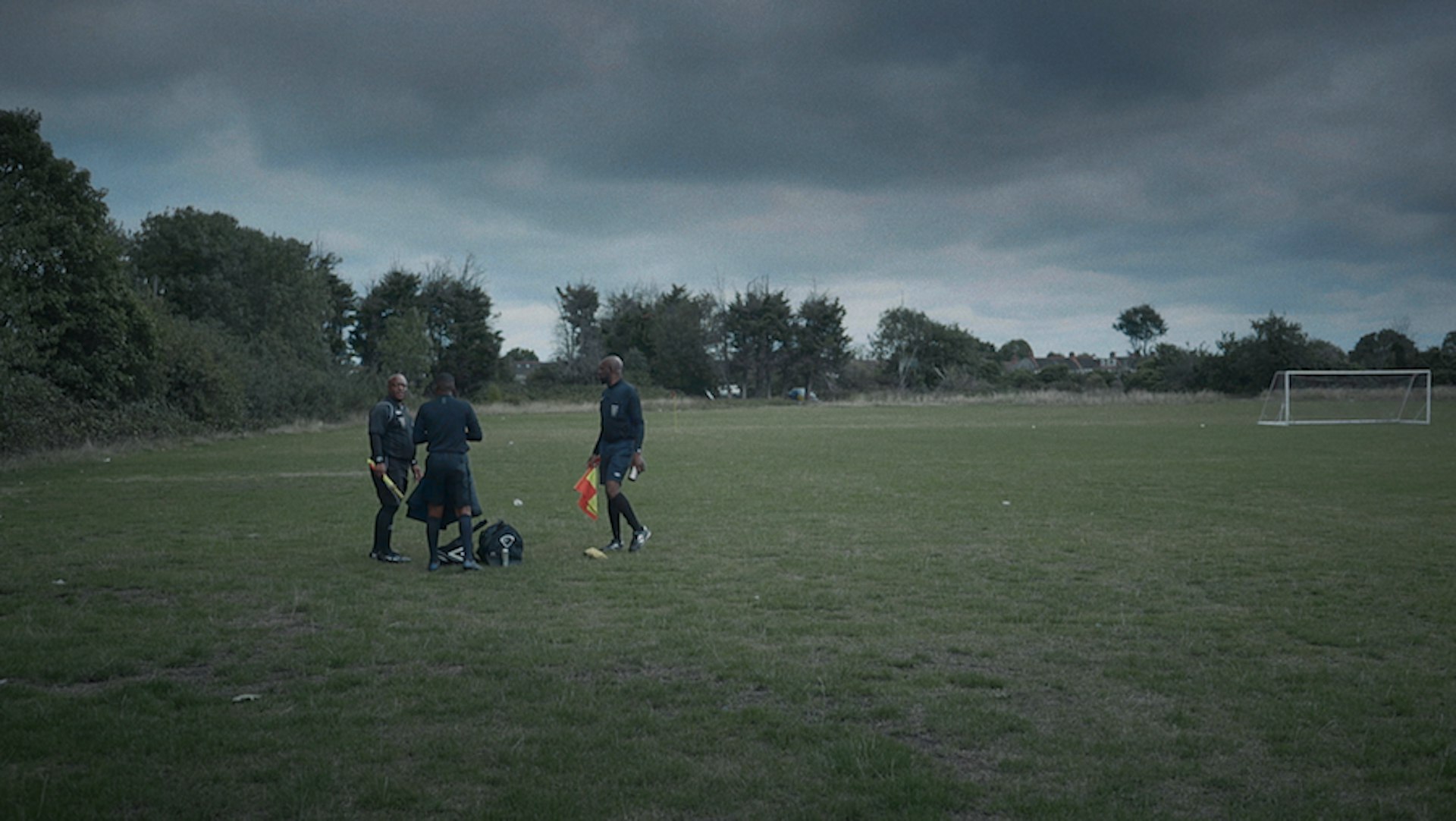
Photo: In The Middle.
Finally, how have you both been doing since filming stopped?
N: The pandemic made me realise I didn’t want to give up, because refereeing that first August back was such a great escape. As much as we’ve gone through, it was nice to have that mental relief of going to a different environment, doing something that you genuinely enjoy. I’m a glass half-full, optimistic person, but I certainly missed football when it wasn’t allowed in any way, shape or form. I’m lucky to have a good family around me; I do try and find the best in things. I’ve been a Derby County fan for 40 years. That teaches you to enjoy the highs, because there’ll be plenty of lows that come with them!
L: I oversee Trans Radio and TRUK Listens, which I love because they give our community a voice, but my baby at the minute is TRUK United. I had lots of [trans] people saying they wanted a football team for them, so I set up TRUK United eighteen months ago. We’ve won awards since then. People come from all over the UK to play with us. Last March, we fielded the first team in the world of all trans women. This year, we’re fielding the first team in Europe of all trans men. It’s like managing a Premier League team! I’m really pushing for us to play at some big stadiums, and we just got a 15kg delivery of football kits, which are being sold to people all over the world. After this interview, I’ve got to pack up orders, get labels printed and go down to the Post Office – that’s a three-hour job in and of itself! It’s manic, but I love it. It’s all for our community.
Interviews have been edited and condensed for clarity.
In The Middle is in cinemas March 31 and VOD May 01.
Enjoyed this article? Like Huck on Facebook or follow us on Twitter.
